A distant corner of Venice currently hosts a three-day agricultural fair. Plenty of farmers with stands promoting their produce.
Venetian Stories
This post is an issue of our newsletter — Venetian Stories — which goes out every few weeks, to keep in touch and share stories and titbits from and about Venice and its history.
You heard that right! An agricultural fair in Venice, which has no countryside.
And what does that have to do with people leaving Venice?
It has everything to do with people leaving Venice.
Castello basso
This area in eastern Venice is known as Castello basso because we have the lower house numbers of the sestiere.
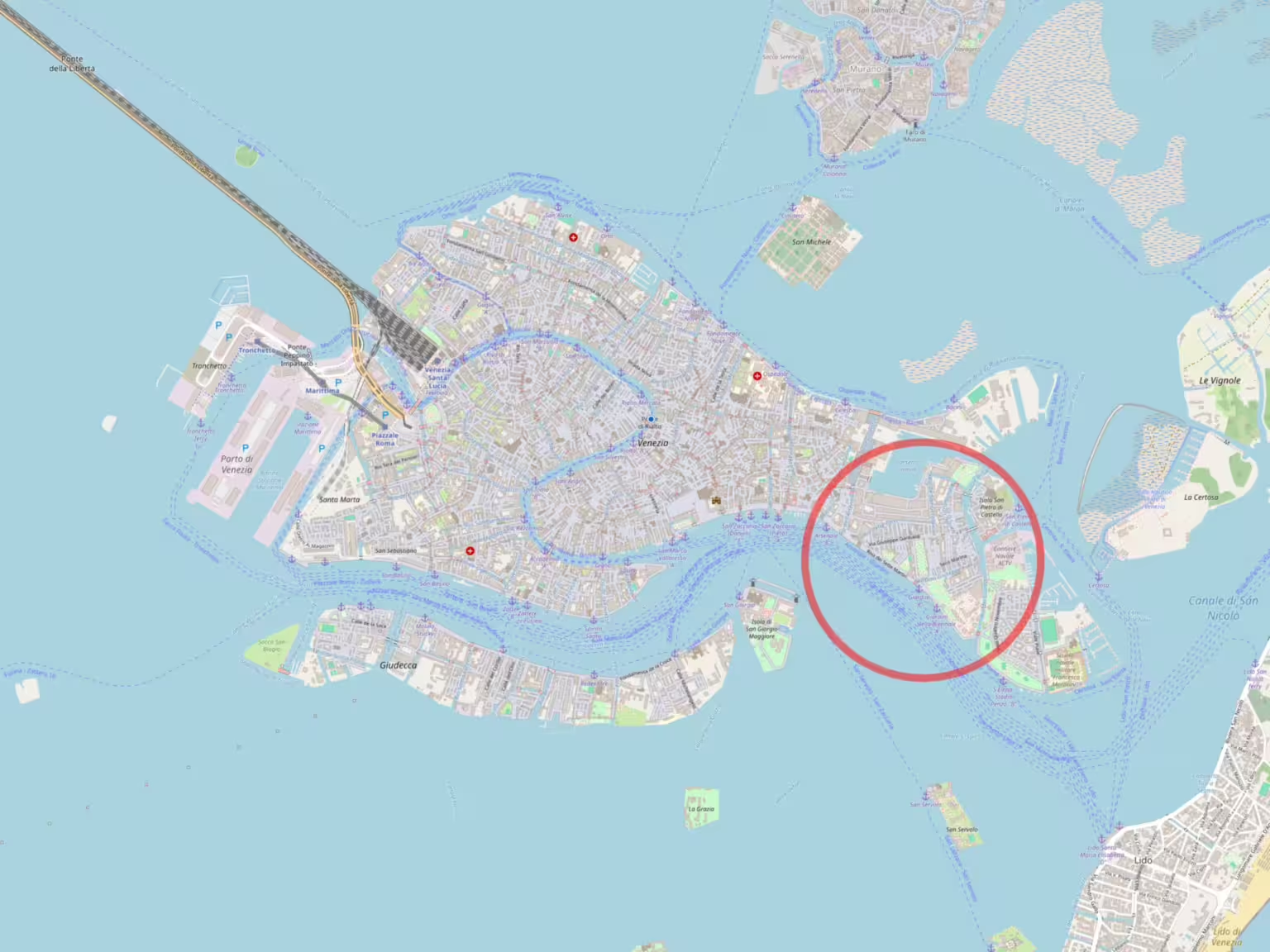
Due to the presence of the Arsenale (used by the Italian Navy and the Biennale), the Biennale areas outside the Arsenale, and a number of private properties and shipyards, the area is practically fenced in.
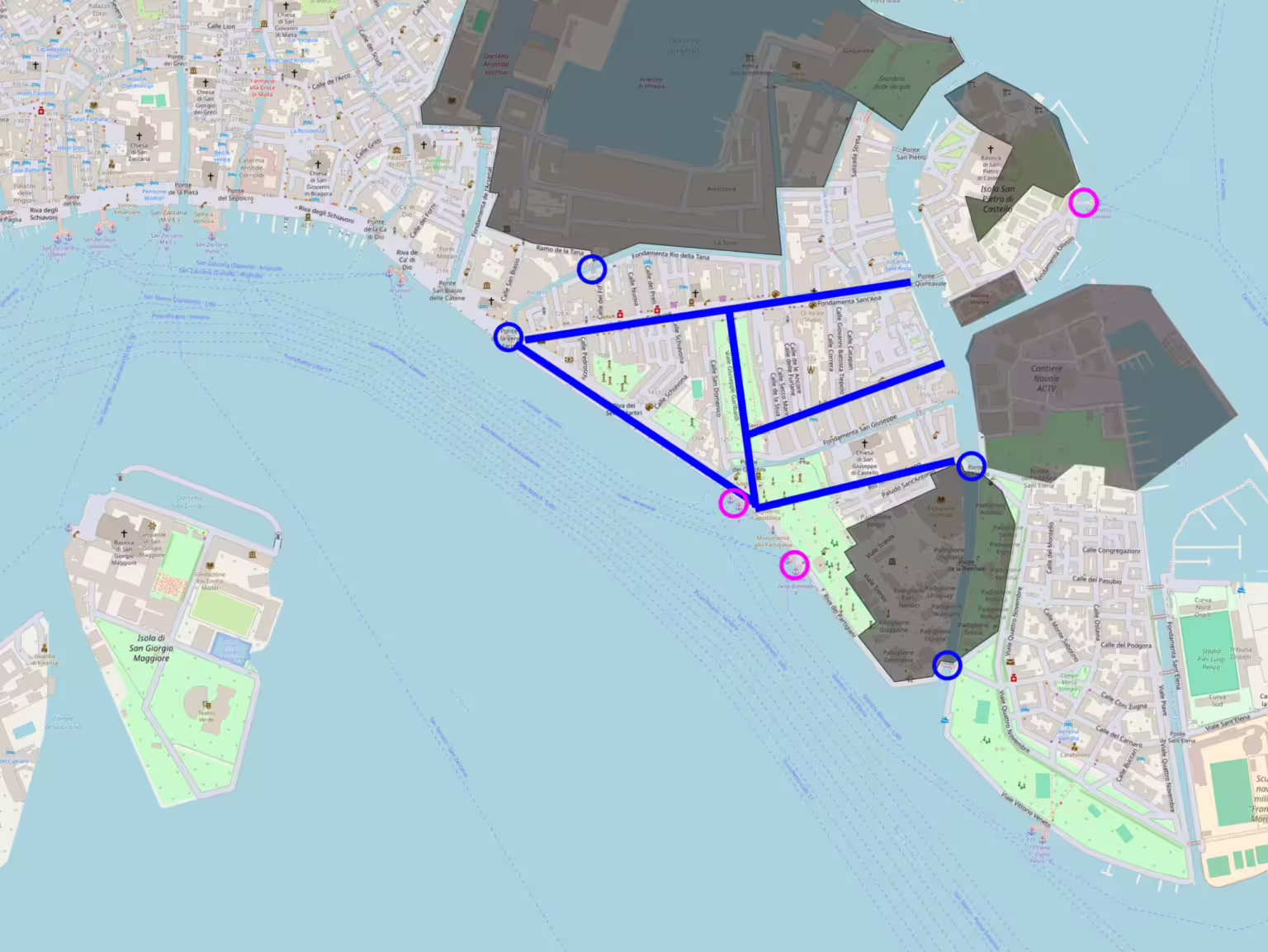
The grey areas are off-limits areas where residents cannot go (Navy, Biennale, private, shipyards). They are de facto not a part of our town.
Blue circles are the four bridges connecting the area to the outside, and purple circles public transport.
The blue lines are the main roads of the area. They’re pedestrian because this is Venice, but they are our thoroughfares, our highways.
This part of Venice is an entity in itself — and it is one of the few surviving areas of Venice where there’s still a sense of community.
Those public spaces (the blue lines) are where people meet, chat, socialise. It is therefore where our community is born and nurtured.
Space — but for whom?
Venice isn’t really known for having many open spaces around, so where will this fair be?
There are no areas around here suitable for such an event, if not the area of the Biennale. That would be perfect, but it is already occupied by the Biennale.
It will therefore have to be in the public spaces available.
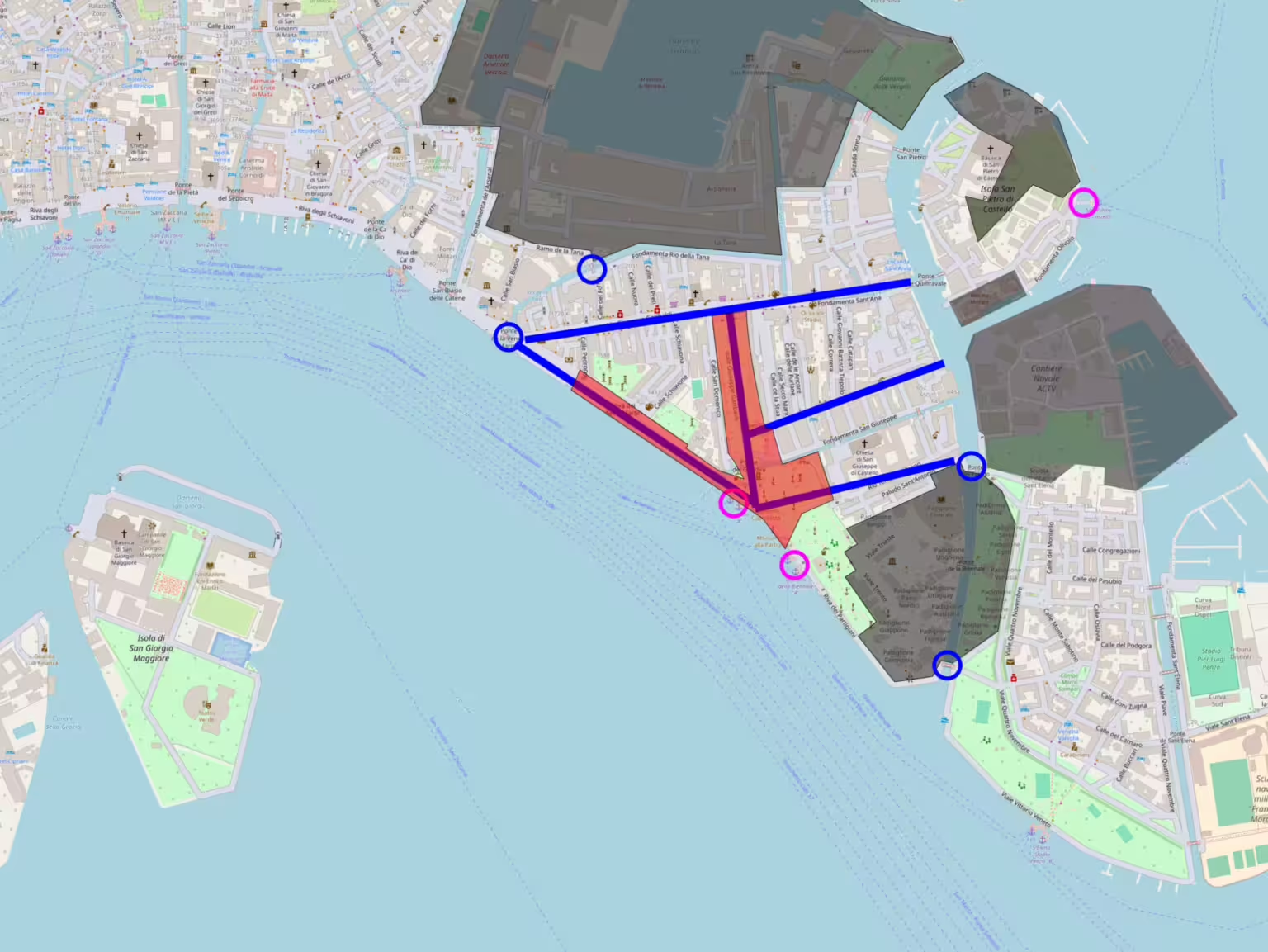
The event occupies three quarters of all the public spaces existing in this part of Venice, and it severs all of our main roads but one.
Now, this is a three-day event, right? It can’t be that bad.
It might be three days of the farmers at their stands, but it is over three weeks for us residents. The area was fenced off the night of June 15th, and it’ll remain fenced off at least until July 8th.
Where will the residents go when the public spaces are fenced off?
Well, who cares?
Venice — but for whom?
Does that sound like parody? Well, it’s not. That is precisely how the organisers and the local administration have approached it.
The fences just went up one night, and people had no idea about how to get to work, do their shopping or even get back home.
No information, no signs on the fences explaining why, just unpleasant guards — day and night — who’ll tell you speak to your local administration if you don’t like it.
It is evident that nobody — absolutely nobody! — cares about the locals.
The lived experience of this is that of an act of violence.
Outsiders have invaded your home and pushed you aside, forcing you to change your daily lives to adapt to their will.
You can do nothing about it but subject and adapt because this is all authorised by the city administration. Our city administration!
This event is not even unique.
Every year, for the Venice Marathon, the same thing happens, just on a slightly smaller scale, and it lasts at most a week.
The problems of living besides the Biennale — noisy building sites for months and then loudspeakers blasting service announcements into our bedrooms — have been a constant of our lives for decades.
No democratic representation
The crux of the issue is that the residents of Venice have no real democratic representation.
The locals have no say in how the Municipality of Venice is run.
The core problem — as I have discussed earlier — is that the Municipality of Venice has 280,000 inhabitants, of which less than 49,000 live in Venice.
For each vote in Venice, there are four votes on the mainland.
Venice and the mainland are two fundamentally different places, and often the material interests of the residents are opposite.
When that happens, the people on the mainland wins because they’re the most.
For us as residents of Venice, it means we have little to no say in how our city is used.
Whatever way the residents of the city vote, they will get a local administration representing the interests of the mainland against the interests of the lagoon city.
Venice is now, to all extents and purposes, a periphery of the mainland, to be exploited for its resources.
Venice is a cow to be milked by people who don’t live here.
Just leave, then!
If it’s so bad, why doesn’t Venice leave?
Venice doesn’t leave because there is no legal way for it to leave, without the consent of the mainland.
This is not a new debate. There have been several votes on splitting up the municipalities which were joined up under the fascist regime, but they all failed.
They didn’t fail in Venice. There were huge majorities in Venice for a separate local administration. There weren’t, however, on the mainland where the propositions suffered crushing defeats.
If back then there were two votes on the mainland for each vote in Venice, there are now even four votes.
The mainland will never let Venice go.
An abusive relationship
Venice is in an abusive relationship with the mainland, and there’s no legal way out.
Its needs are being ignored, its wishes overruled.
By now, the cry in Venice isn’t even “Go away! You’re hurting me!” but rather, “Please don’t hurt me so much!” because the abuse is not going to stop, and there’s no way out.
Venice is trapped.
This event is a blatant act of violence on the residents of an entire part of the city, and yet it is not unique.
An act of violence perpetrated by the local administration which was supposed to represent us, but doesn’t and won’t.
And we still ask why people leave.
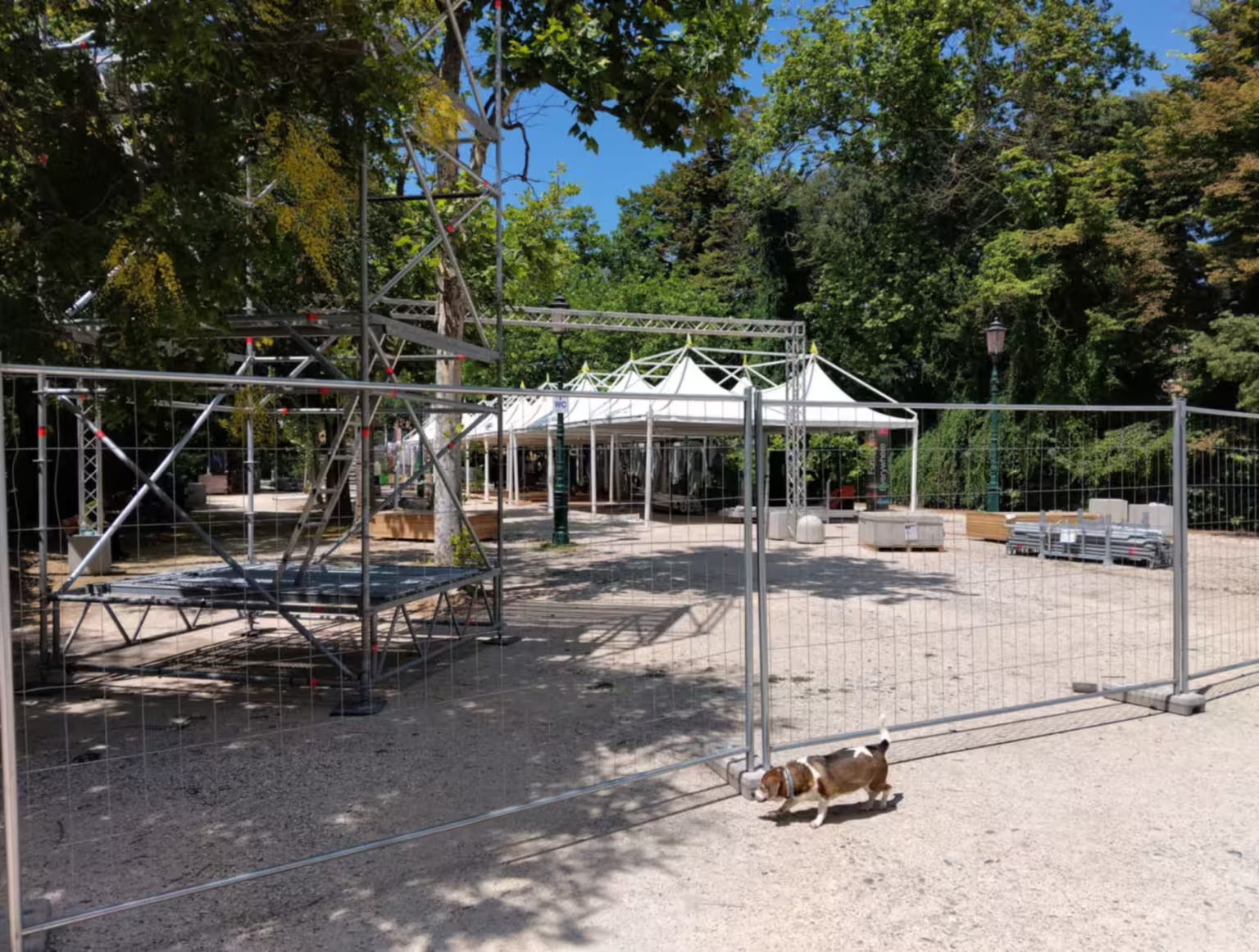
#EnjoyRespectVenezia, as the city administration proudly exclaims, when it wants others to behave decently.

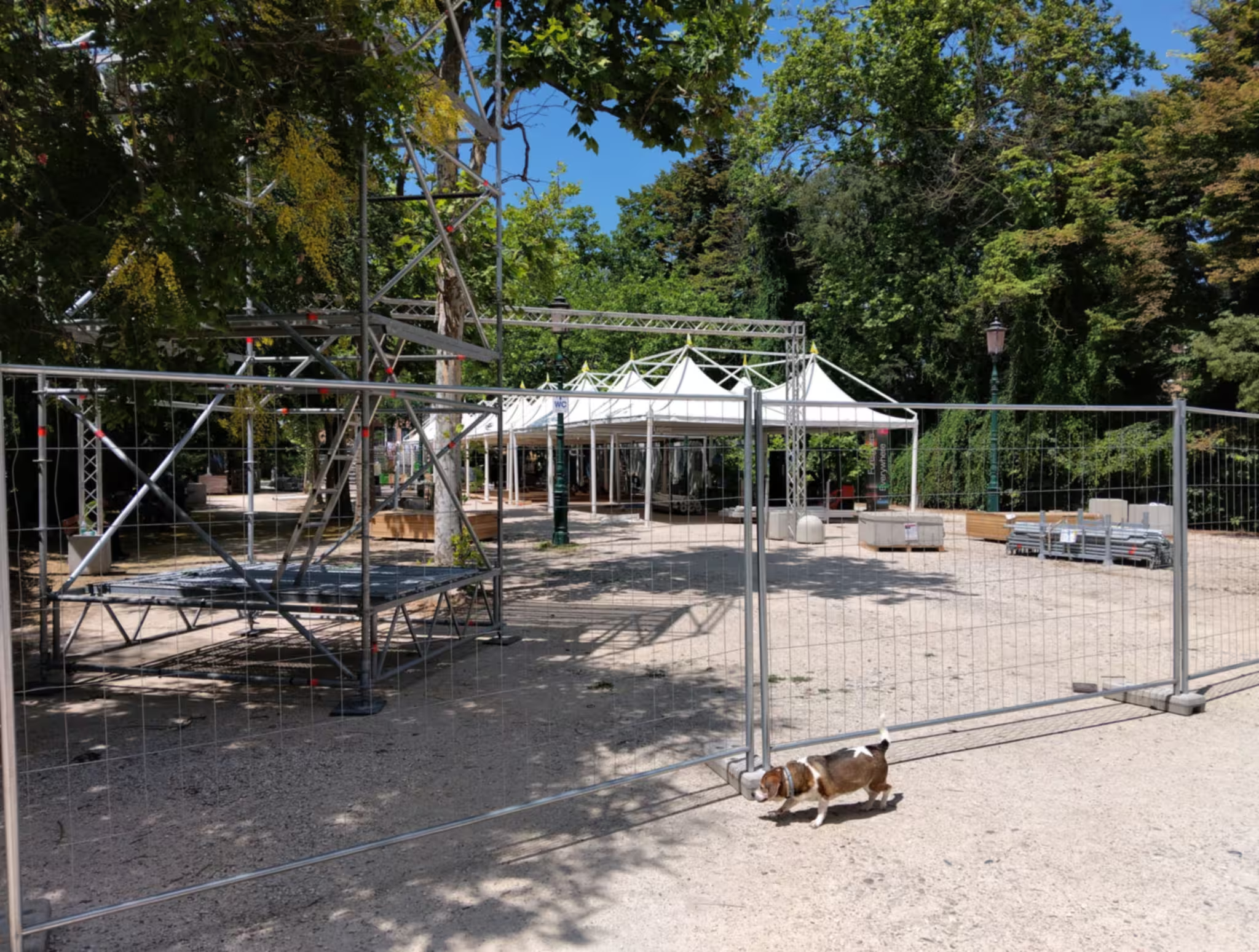
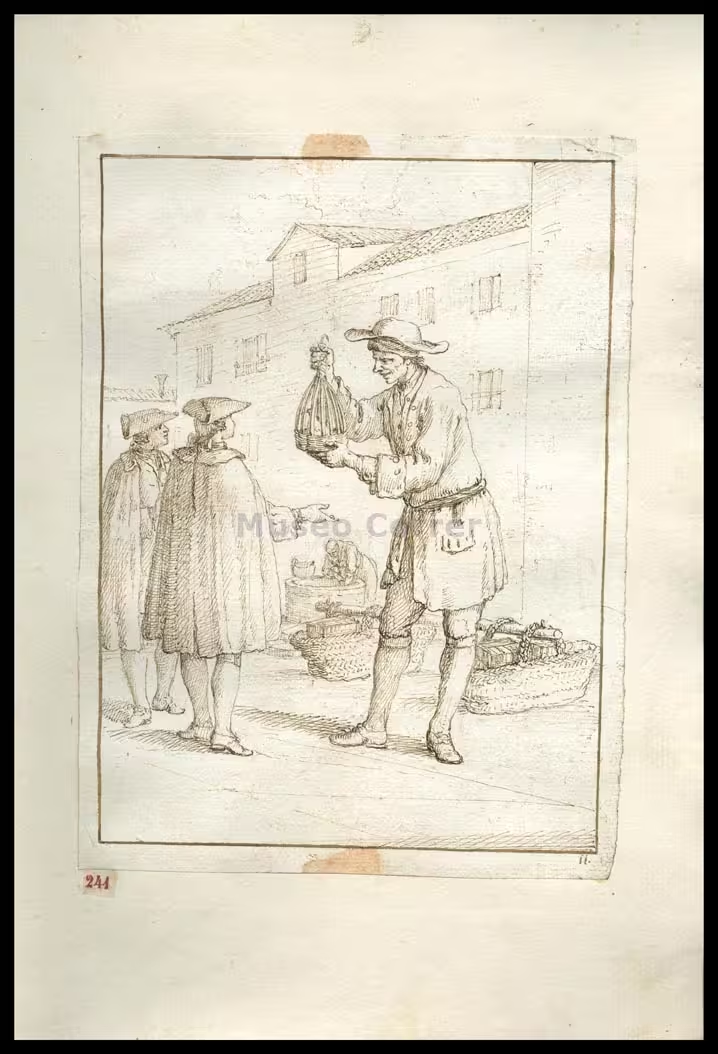

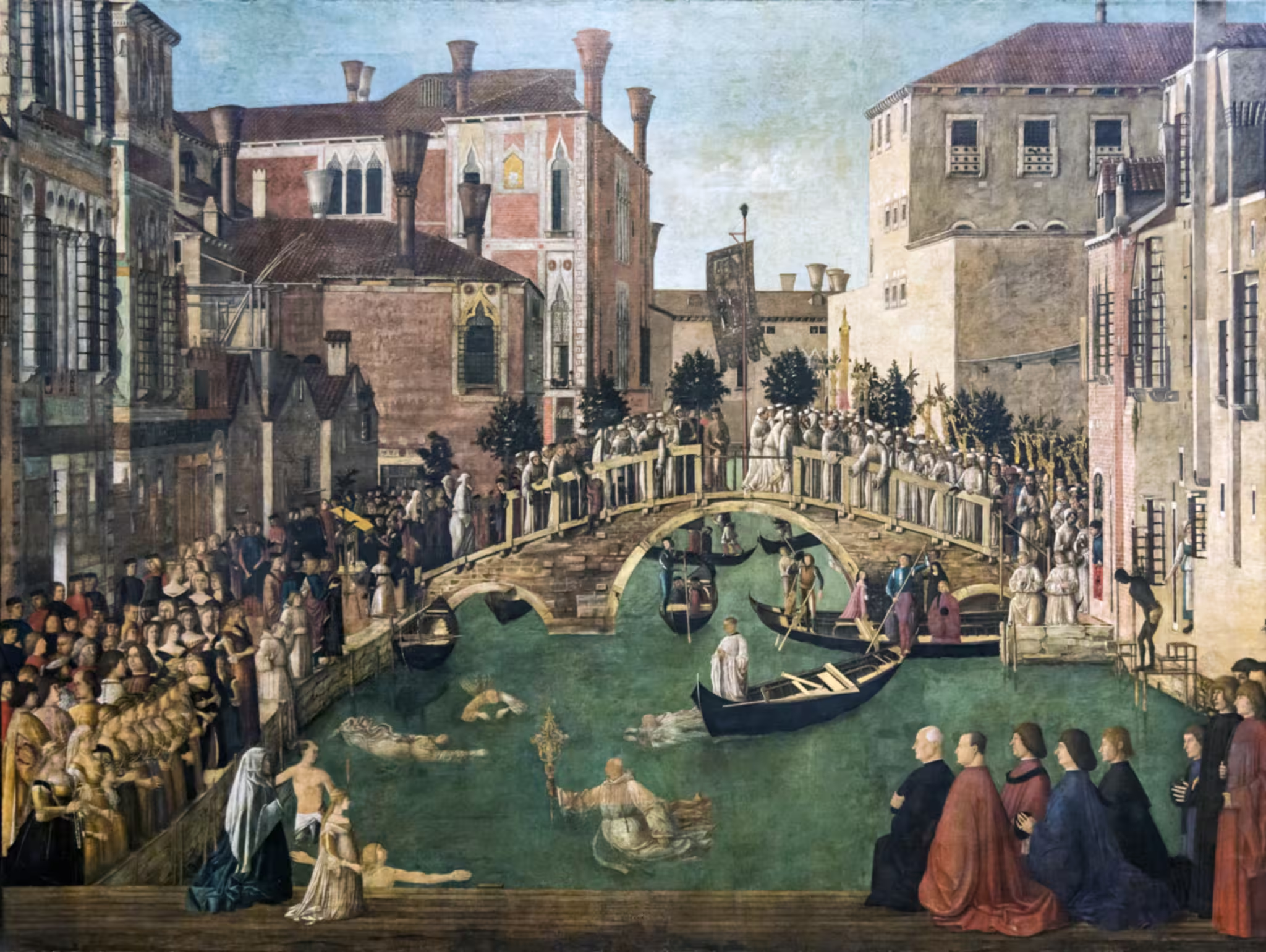
Leave a Reply